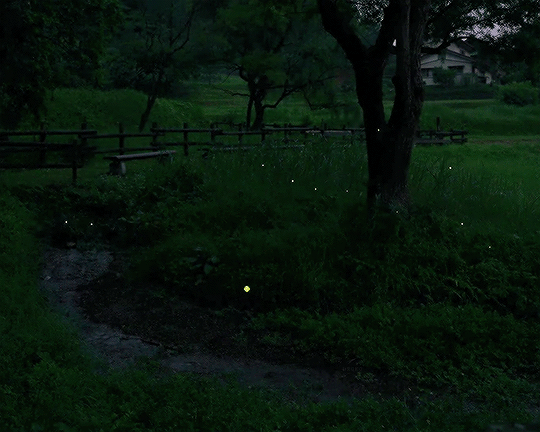Text
chinese drawing vocab (绘圈常用名词)
for those interested in navigating the online art world in chinese, here's a list of common terms and abbreviations that you might see (translated from zhihu) 🎨
terms
人设 [rén shè] - persona
兽设 [shòu shè] - fursona
摸鱼 [mō yú] - doodles
劳斯 [láo sī] - homophonic way to say 老师 (teacher) , in addition to 太太,大大,大触, 卡密 -- can be honorific, but 老師 is also just a common way to refer to artists
日绘 [rì huì] - daily drawing
击鼓传画 [jī gǔ chuán huà] - art telephone
绘圈小警察 [huì quān xiǎo jǐngchá] - referring to people who accuse artists of plagiarism/tracing without evidence (direct trans: little art policemen)
abbreviations
ACG - animation, comics, and games
CN - cosplayer name
zll (再练练) [zài liàn liàn] - keep practicing
compliments
awsl (阿我死了) [Ā wǒ sǐle] - ah, i'm dead! -- will also see “阿伟死了” (a-wei's dead, a typo), which, after many b站barrages, becomes "阿伟乱葬岗" (a-wei's mass grave)
tql (太强了/太巧了) [tài qiángle/tài qiǎole] - "too strong" (more common usage) or "what a coincidence"
可可 [kěkě] - cute (derived from 可愛)
comments
腿一个 [tuǐ yīgè] - showing your current drawing's progress, directly trans. as "one leg," i.e. showing just the leg -- it's a play on words for 推 (push), i.e. pushing/posting progress
commissions
买断 [mǎi duàn] - autobuy for an auction
白菜 [báicài] - high quality, low price art (direct trans: cabbage)
可小刀 [kě xiǎodāo] - haggling prices; 小刀/大刀/自刀 = small/big/self-haggle
出模 [chū mó] - bases/templates
110 notes
·
View notes
Text
期望 – Hopes for the Future
来自:Yoyo Chinese Upper Intermediate Level 27
生词:
日后 / rì hòu / in the days to come; in the future
期望 / qī wàng / expectation; to expect (noun & verb)
愿望 / yuàn wàng / desire, wish (noun)
期盼 /qī pàn / to look forward to; to expect or wait (for)
支持 / zhī chí / to support
采访 / cǎi fǎng / to interview; to gather info/news
有生之年 / yǒu shēng zhī nián / for the rest of one's life
岁数 / suì shù / age
实在 / shí zài / really, indeed
敲门 / qiāo mén / to knock on a door
养老院 / yǎng lǎo yuàn / nursing home
居住 / jū zhù / to reside
纠结 / jiū jié / to be tangled, confused, at a loss
搞 / gǎo / to do; changes meaning depending on complement
白头偕老 / bái tóu xié lǎo / growing old together
始终 / shǐ zhōng / "from beginning to end"; always, forever
语法:希望 vs. 期望 vs. 愿望 vs. 期盼
So in this lessen there were 3 different words used for "hope" "wish/desire" and "expectations" so I wanted to briefly explain the differences!
希望 is "to hope", and my understanding is it can also be a "hope" in noun form. In general it's used in the "I hope..." form.
愿望 is a noun only, and means a wish or desire.
期望 is verb or noun, and is less about hopes/dreams/wishes, and more about real-life, tangible expectations. It's less of "I wish" and more of "I expect." (and just like in English, expectations can be realistic or not; positive or not)
期盼 is a verb that means "to expect" in the sense of "to look forward to" something. Like 期望 it's more tangible (not so much wishes/dreams) but less of "I expect this to happen" (fact) and more of "I'm really looking forward to this thing happening" (emotional/happy).
Here's a sentence that uses three of them!
我希望我的生日愿望会实现,但我没有任何期望。I hope my birthday wish comes true, but I don't have any expectations.
More sentences below!
我会采访我的爸爸妈妈。I will interview my Dad and Mom.
你们对日后的生活有一些什么样的期望呢?What expectations do you (pl) have for your life in the future?
退休后呢,我跟你妈妈的最高愿望就是希望自己健康,你妈妈健康。After retirement, my highest hopes for your mom and I are my own health and your mom's health.
要先敲门,等我说“请进”以后,你才能够进来。When you first knock on the door, wait until after I say "please enter", then you can come in.
我们的有生之年呢,就能够到处走一走,实在我们岁数大了到走不动的时候。For the rest of our lives, (we want) to be able to do go around everywhere and walk, (since) really when we get older we'll lose the ability to walk.
我们就居住在北京然后找一个能够真正让我们养老的地方。We want to reside in Beijing and then find a place that can really take care of us old people.
其实在父母养老的问题上,我很纠结的。Actually (as for) the problem of my parent's elderly care, I'm at a loss.
我期盼着高中毕业以后上大学,生活会更自由。I'm looking forward to going to college after graduating high school, life will be more free.
跟我关系搞好。Build/maintain a good relationship with me.
我们俩关系始终是好的,是要叫“白头偕老”的。Our relationship has always been good, should call (us) "growing old together."
不好意思,来晚了,我把时间搞错了。Sorry I'm late, I got the time wrong.
196 notes
·
View notes
Text
This is what a ship captain sees during a storm in the ocean..!
2K notes
·
View notes
Text
957 notes
·
View notes
Text
Things that can be done with one leg
English added by me :)
3K notes
·
View notes
Video
Turtles helping each other in times of need
(Source)
11K notes
·
View notes
Text
成语故事 – 闻鸡起舞
闻鸡起舞 / wén jī qǐ wǔ
lit: "hear chicken rise wield" / "to rise at the chicken's crow"
meaning: to start practicing/studying at the crack of dawn (when the rooster crows); to be diligent and hardworking
生词 Vocab:( HSK 5 )
远大(遠大) / yuǎn dà / ambitious, broad, far-reaching
志向 / zhì xiàng / ambition, aspiration, goal
一同 / yì tóng / together
担任(擔任) / dān rèn / to hold office position
主簿 / zhǔ bù / county registrar
一阵(一陣) / yí zhèn / burst, short period of time
黑漆漆 / hēi qī qī / pitch-black
侧耳(側耳) / cè ěr / to strain one's ears (to listen)
啼 / tí / to cry, weep, or crow
恶声(惡聲) / è shēng / malice, abuse; lewd song
邪恶(邪惡) / xié è / evil, sinister, wicked
三更 / sān gēng / midnight
征兆(徵兆) / zhēng zhào / omen, warning sign
吉利 / jí lì / lucky
催促 / cuī cù / to urge
练武(練武) / liàn wǔ / to study martial arts
干脆(乾脆) / gān cuì / direct or to the point; frankly, ...
欣然 / xīn rán / joyfully, cheerfully
迅速 / xùn sù / swiftly, rapid
刻苦 / ké kǔ / diligent, hardworking
立下 / lì xià / to establish
报效(報效) / bào xiào / to render service to repay kindness
愿望(願望) / yuàn wàng / aspiration, wish, desire
句子 / 成语 Phrases / Idioms
建功立业 / jiàng gōng lì yè / to achieve or accomplish goals
栋梁之才 / dòng liáng zhī cái / person of statesmen-like abilities or high quality
寒来暑往 / hái lái shǔ wǎng / "as summer goes and winter comes"; time passing
功夫不负有心人 / gōng fu bù fù yǒu xīn rén / hard work won't let you down
能文能武 / néng wén néng wǔ / to wield pen and sword
故事:
人物 Characters:祖逖 [zǔ tì] and 刘琨 [liú kūn]
祖逖是东晋时期河北范阳人,他从小就有一个远大的志向,那就是建功立业,成为国家的栋梁之才。祖逖曾经和好朋友刘琨一同担任司州主簿,两个人感情很好,吃饭,睡觉都在一起。
一天夜里,祖逖睡得正香,突然被一阵鸡叫声惊醒了。他往床外看了看,只见外边黑漆漆的,看时间也就是半夜。祖逖叫醒身边的刘琨,闻到:“你听到鸡叫声了吗?”
刘琨侧耳听了听,说:“是鸡在啼叫。不过,半夜的鸡叫声是恶声啊!”
原来,古代的人把三更以前啼叫的鸡叫做“荒鸡”,荒鸡的叫声被看做邪恶的叫声,是天下大乱的征兆。
听了刘昆的话,祖逖说:“别人都认为半夜的鸡叫不吉利,可我偏不这样想。我觉得这是催促我们赶快起床练武的叫声。干脆,以后我们听见鸡叫声就起床练剑,如何?”
刘琨听了欣然同意。于是,两个人迅速穿好衣服,来到院子里练起剑来。从那以后,他们每天听到鸡叫就起床练剑,寒来暑往,从不间断。
功夫不负有心人,经过长时间的刻苦学习和训练,祖逖和刘琨终于都成为了能文能武的全才。后来,他们参加了军队,立下了许多战功,实现了报效国家的愿望。
50 notes
·
View notes
Text
37K notes
·
View notes
Text
Nishan Shengjing(尼山圣境; "Nishan Sacred Land"), a scenic area dedicated to Confucius and his teaching in Qufu, Shandong, the hometown of Kongzi/Confucius.
345 notes
·
View notes
Text
聊天的词 11
HSK 4 / HSK 5 / HSK 6
单词:
至少 / zhì shǎo / at least...; to say the least
认真,認真 / rèn zhēn / earnest, serious
耐心 / nài xīn / to be patient, patience
熟悉 / shú xī / to be familiar with or know well
擅长,擅長 / shàn cháng / to be good at or expert in
迷茫 / mí máng / perplexed, at a loss
丧,桑 / sàng / frustrated, dejected*
常见,常見 / cháng jiàn / common
取名 / qǔ míng / to be named, to be given a name
组合,組合 / zǔ hé / association, combination
的确,的確 / dí què / indeed, really (is)
融合 / róng hé / mix together, fuse, merge
风格,風格 / fēng gé / style, manner
传统,傳統 / chuán tǒng / tradition, traditional
规则,規則 / guī zé / regulation, rule; law
算命 / suàn mìng / to tell sb's fortune; fortune-telling
蛮,蠻 / mán / quite; rough, barbarian
看球 / kàn qiú / to watch a ball game (e.g. foodball, soccer, etc)
纠正 / jiū zhèng / to correct
整齐 / zhěng qí / neat and tidy
社恐 / shè kǒng / social anxiety
社牛 / shè niú / social ox/bull (the opposite of socially anxious)
* Note: this word is a newer online/slang usage. More traditionally means "funeral, mourning" (sāng pronunciation) and "to lose something abstract (e.g. courage); disappointed"
句子:
每个人的性格不同,至少对我来说,你对我很认真很耐心。Everyone's personality is different, at least to me, you have been earnest and patient.
我想到一句我们都熟悉的话。I thought of a phrase we're both familiar with.
我不擅长和人打交道。 I'm not good at dealing with people.
我现在也很迷茫。Right now I'm confused/at a loss.
很丧的歌。A frustrated song (re: the lyrics/vibe)
你取的是一个很常见的名字。You chosen (name) is a common name.
这个名字用的三个字都是很常见的,不过组合起来的确有融合中西风格的特色。This name uses 3 characters that are common, but the combination is indeed mixing western & chinese style's characteristics.
不知道美国在取小孩的名字时有没有什么传统或规则,台湾的名字蛮多是算命来的。I don't know if America has traditions or rules when naming children, Taiwan names are quite fortune-telling (re: the names chosen are based on what you want your child to achieve in their life)
那我会发🤓这个emoji来纠正你。Then I will send you 🤓 this emoji and correct you.
你的房子好整齐好漂亮。Your home is very neat/tidy and pretty.
你有点社恐吗?Are you a bit socially anxious?
I am like the opposite, 我是社牛 哈哈! I am like the opposite, I'm a social ox haha!
72 notes
·
View notes
Text
成语故事 – 望梅止渴
望梅止渴 / wàng méi zhǐ kě
lit: "to quench one's thirst by imagining plums"
meaning: to relieve hurt / console oneself by imagining something good/illusions
生词:
部队 (部隊) / bù duì / army, troops
讨伐(討伐) / tǎo fá / to send (army) to suppress / crusade
叛军(叛軍)/ pàn jūn / rebel group/army
正直 / zhèng zhí / just when...
随身(隨身) / suí shēn / to carry (on one's person)
携带(攜帶)/ xié dài / to carry (TW pronunciation: xī dài)
喝光 / hē guāng / to drink all of, to drink up/finish
体弱(體弱)/ tǐ ruò / debility
中暑 / zhòng shǔ / heatstroke
晕倒(暈倒)/ yūn dǎo / to pass out, faint
向导(嚮導)/ xiàng dǎo / guide, escort
绕路(繞路)/ rào lù / to make a detour
饥渴(飢渴)/ jī kě / hungry and thirsty
沉思 / chén sī / to ponder, contemplate
声张(聲張)/ shēng zhāng / to disclose, make public
加把劲儿(加把勁兒)/ jiā bǎ jìn er / to make extra effort
解渴 / jiě kě / to quench thirst
仿佛(彷彿)/ as if
步伐 / bù fá / pace
故事:
东汉末年,曹操率领部队去讨伐叛军张绣。当时正值盛夏,太阳火辣辣地照着大地,将士们随身携带的水中就喝光了,行军速度越来越慢,有几个体弱的士兵还因为中暑晕倒在路边。看到这种情况,曹操非常着急,他立刻叫来向导,悄悄问他:“这附近有没有水源?”
向导摇了摇头,说:“最近的水源也在山谷的另一边,要绕路才能过去。”
曹操看了看饥渴的士兵,沉思了一会儿,对向导说:“你专心带路吧,不要声张,水的事情让我来想办法。”
说完,曹操骑马爬山一个山头,他假装向远处看了看,然后扭过头对士兵们说:“大家加把劲儿,我找到解渴的东西了!”
士兵们一听,一下子来了精神,忙问:“什么东西?”
曹操指了指前方,说:“这条路我以前曾经走过,我知道在前面不远的地方有一片梅林,梅子结得又多又大,到了那儿就可以解渴了。”
士兵们听了,口水直流,仿佛已经吃到了酸甜可口的梅子,顿时觉得没那么渴了,步伐也随之加快了。这时,曹操派人快步翻过山谷,取来水,士兵们痛快地喝足了水,又继续赶路了。
136 notes
·
View notes
Text
Articulatory Phonetics - 调音语音学
字音 zǐyīn - (n.) consonant (also 福音 fǔyīn)
调音部位diàoyīnbùwèi - (n.) place of articulation (also 发音部位)
双唇音 shuāngchúnyīn - (n.) bilabial sound
唇齿音/齿唇音 chúnchǐyīn/chǐchúnyīn - (n.) labiodental sound
齿音 chǐyīn - (n.) dental sound
齿龈音 chǐyínyīn - (n.) alveolar sound
龈腭音 yín'èyīn - (n.) alveolo-palatal sound
卷舌音 juǎnshéyīn - (n.) retroflex sound
腭音 èyīn - (n.) palatal sound
软腭音 ruǎn'èyīn - (n.) velar sound
小舌音 xiǎoshéyīn - (n.) uvular sound
咽音 yānyīn - (n.) pharyngeal sound
声门音/喉音 shēngményīn/hóuyīn - (n.) glottal sound
调音方法 diàoyīnfāngfǎ - (n.) manner of articulation
阻碍音 zǔ'àiyīn - (n.) obstruent
塞音 sèyīn - (n.) stop, plosive
擦音 cāyīn - (n.) fricative
咝音 sīyīn - (n.) sibilant
塞擦音 sècāyīn - (n.) affricate
响音 xiǎngyīn - (n.) sonorant
鼻音 bíyīn - (n.) nasal
流音 liúyīn - (n.) liquid
边音 biānyīn - (n.) lateral
近音 jìnyīn - (n.) approximant
半元音bànyuányīn - (n.) semivowel, glide
颤音 chànyīn - (n.) trill
弹音 tányīn - (n.) tap
闪音 shǎnyīn - (n.) flap
发声态 fāshēngtài - (n.) phonation
清音 qīngyīn - (n.) voiceless sound
浊音 zhuóyīn (n.) voiced sound
送气音 sòngqìyīn - (n.) aspirated sound
不送气音 búsòngqìyīn - (n.) unaspirated sound (also 非送气音)
发声起始时间 fāshēngqǐshǐshíjiān - (n.) voice-onset time (VOT)
元音 yuányīn - (n.) vowel
元音高度 yuányīn gāodù - (n.) vowel height
元音舌位 yuányīn shéwèi - (n.) vowel backness
前元音 qiányuányīn - (n.) front vowel
央元音 yāngyuányīn - (n.) central vowel
后元音 hòuyuányīn - (n.) back vowel
闭元音 bìyuányīn - (n.) close vowel
次闭元音 cìbìyuányīn - (n.) near-close vowel
半闭元音 bànbìyuányīn - (n.) close-mid vowel
中元音 zhōngyuányīn - (n.) mid vowel
半开元音 bànkāiyuányīn - (n.) open-mid vowel
次开元音 cìkāiyuányīn - (n.) near-open vowel
开元音 kāiyuányīn - (n.) open vowel
圆唇元音 yuánchúnyuányīn- (n.) rounded vowel
不圆唇元音 bùyuánchúnyuányīn - (n.) unrounded vowel
鼻化元音 bíhuāyuányīn - (n.) nasal vowel
声调/声 shēngdiào/shēng - (n.) tone
阴平声 yīnpíngshēng - (n.) high level tone
阳平声 yángpíngshēng - (n.) rising tone
上声 shǎngshēng (also shàngshēng) - (n.) falling-rising tone
去声 qùshēng - (n.) falling tone
轻声 qīngshēng - (n.) neutral tone
声道 shēngdào - (n.) vocal tract
发音器官 fāyīnqìguān - (n.) articulators, speech organs
肺脏 fèizàng - (n.) lungs
喉 hóu - (n.) larynx
声带 shēngdài - (n.) vocal folds
振动 zhèndòng - (v.) vibrate
口腔 kǒuqiāng - (n.) oral cavity
颚 è - (n.) jaw
鼻腔 bíqiāng - (n.) nasal cavity
舌根 shégēn - (n.) tongue root
舌面 shémiàn - (n.) tongue body (dorsum) (also 舌背)
舌尖 shéjiān - (n.) tongue tip
We can also divide the tongue like this: 舌前部,舌中部,舌后部
气流机制 qìliújīzhì - (n.) airstream mechanism
外呼音 wàihūyīn - (n.) egressive sound
内吸音 nèixīyīn - (n.) ingressive sound
肺部外呼音 fèibùwàihūyīn - (n.) pulmonic egressive sound
声门外呼音 shēngménwàihūyīn - (n.) glottalic egressive sound
挤喉音 jǐhóuyīn - (n.) ejective consonant
声门内吸音 shēngménnèixīyīn - (n.) glottalic ingressive sound
内爆音 nèibàoyīn - (n.) implosive consonant
舌内吸音 shénèixīyīn - (n.) lingual (velaric) ingressive sound
搭嘴音 dāzuǐyīn - (n.) click consonant
声源-滤波器理论 shēngyuán-lǜbōqì lǐlùn - (n.) source-filter theory
168 notes
·
View notes



